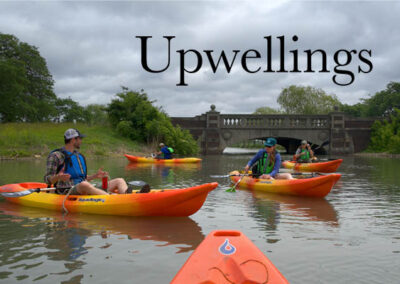This summer, Michigan Sea Grant kicked off a new binational fellowship with the Great Lakes Sea Grant Network (GLSGN), the Great Lakes Commission (GLC), and the International Joint Commission’s Great Lakes Regional Office (IJC-GLRO) with an inaugural group of three recent graduates. Working with mentors from Michigan and Ohio Sea Grants, the GLC, and the IJC, the three fellows are coordinating community engagement activities for the IJC Great Lakes Science Advisory Board’s Great Lakes Science Plan. Their work will help ensure the plan reflects and supports the needs of underrepresented groups and Indigenous communities from around the Great Lakes. In addition, the fellows are supporting the Participatory Science Plan by outlining the next phase of a Great Lakes Participatory Science Guidebook and Community of Practice Hub.
Meet the trio embarking on this year-long fellowship:
Ian Stone
A lifelong Michigander, Ian has spent his life in Southeast and West Michigan studying and appreciating the Great Lakes and the people that call them home. Prior to his role as a Great Lakes Fellow, he has studied various aspects of the Great Lakes including harmful algal blooms and hypoxia in the Muskegon Lake Area of Concern, submerged sinkholes of Lake Huron, and marine protected areas. In his free time, Ian enjoys kayaking, hiking, relaxing at the beach, playing sports, and devoting three hours each Sunday in the fall to the Detroit Lions.
Megan McLaughlin
Megan McLaughlin is a recent graduate from the University of Michigan School for Environment and Sustainability (UM SEAS), earning her M.S. specializing in geospatial data science. Committed to equitable well-being, she is an experienced community engagement facilitator and her research areas have included climate and health, urban forestry, and coastal management and resilience. Megan is especially interested in designing evaluation and monitoring systems that effectively track and visualize progress towards reaching adaptation and mitigation goals.
Tori Agnew-Camiener
Tori has a B.S. in Marine Biology from Roger Williams University and recently graduated from University of Maryland, Baltimore County (UMBC) with a Ph.D. in Marine Estuarine Environmental Science and a focus in molecular science and technology. She has spent most of her career studying disease in oysters and seagrass and has a passion for science that can be used to inform policy and management. She is excited to apply her skill set to the Great Lakes Fellowship! She’s originally from upstate New York and loves to hike with her husband and dog.





